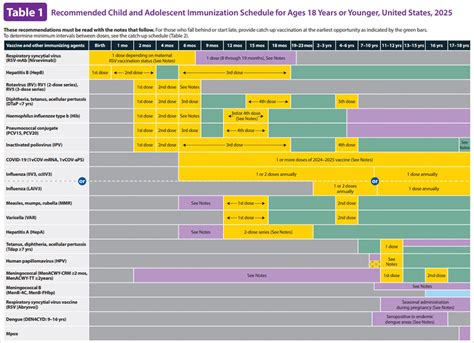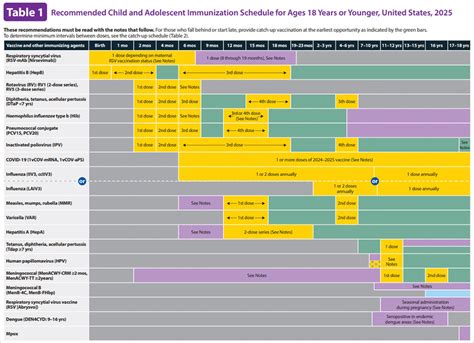
The Role of Vaccines
Vaccines play a crucial role in ensuring the health of children by stimulating the immune system to build defenses against certain infectious diseases. They are designed to mimic infections, which helps the body learn how to fight off specific pathogens without causing the actual illness. For instance, vaccines like MMR (Measles, Mumps, and Rubella) help prevent outbreaks of these diseases by creating herd immunity. This not only protects vaccinated individuals but also those who cannot be vaccinated due to medical reasons. Understanding the importance of vaccines can empower parents to make informed choices for their children’s health. For additional information on immunization requirements, visit Washington State Department of Healthor Arkansas Department of Health. Moreover, valuable insights can be found in related discussions on childhood vaccinations at Latremie Archive 9and Latremie Archive 51.
Benefits of Childhood Immunizations
Childhood immunizations offer numerous benefits, not only for individual children but also for community health. Vaccines prepare a child’s immune system to recognize and fight off specific diseases, leading to increased protection against infections such as measles, mumps, and rubella. This proactive approach reduces the risk of severe health complications associated with preventable diseases. Additionally, vaccination can lead to herd immunity, which occurs when a significant portion of the population is immunized, thereby protecting those who cannot be vaccinated, such as infants and individuals with certain health conditions.
"Immunizations are essential in creating a safer environment for our children," emphasizes Dr. Jane Smith, a pediatrician advocating for vaccination awareness. As parents prioritize their children’s well-being, understanding the benefits of vaccinations not only alleviates concerns about potential illnesses but also fosters confidence in public health measures. For more information on immunization schedules and benefits, you can visit the Illinois Department of Public Health hereor check health resources in Missouri here.
How Vaccines Protect Health
Vaccines play a crucial role in fortifying children’s health by stimulating the immune system to recognize and combat pathogens. When a child receives a vaccination, they are often given a weakened or inactive form of the virus or bacteria, which helps their immune system learn to fight that specific disease. This process leads to the creation of memory cells, allowing the body to respond more effectively if exposed to the disease in the future. Not only do vaccines provide individual protection, but they also contribute to herd immunity by reducing the spread of infectious diseases within communities. As more individuals are vaccinated, transmission rates decrease, safeguarding children who may not be able to receive immunizations due to health conditions. For more information on vaccine schedules and their benefits, you can visit Texas Immunizationsand Oklahoma Health Immunizations.
| Vaccine | Disease Prevented | Dosage Schedule |
|---|---|---|
| DTaP | Diphtheria, Tetanus, Pertussis | 5 doses (2 months – 6 years) |
| MMR | Measles, Mumps, Rubella | 2 doses (1 year – 6 years) |
| IPV | Polio | 4 doses (2 months – 6 years) |
| Hib | Haemophilus influenzae type b | 4 doses (2 months – 15 months) |
Immunization Success Stories
Immunization has played a pivotal role in reducing the incidence of once-common diseases. For instance, the widespread use of the measles vaccine has led to a dramatic decline in cases, with the World Health Organization reporting that global measles deaths decreased by 80% between 2000 and 2017 due to vaccination efforts. Additionally, the introduction of the human papillomavirus (HPV) vaccine has been instrumental in lowering rates of cervical cancer among vaccinated populations. By sharing these compelling success stories, it becomes clear how collective efforts in immunization not only protect individual children but also foster community health. Parents can take comfort knowing that immunizations are backed by extensive research and evidence of success. For more detailed information about childhood immunizations, you may explore resources from HealthyChildren.organd NYC Schools.
Reducing Infection Anxiety
Immunizations play a crucial role in alleviating the anxieties that many parents face regarding their children’s health. By ensuring that children receive timely vaccinations, parents can significantly reduce the risk of serious infections. This proactive approach not only protects individual children but also contributes to herd immunity, which is essential for community health. Parents often feel overwhelmed by the potential threats posed by infectious diseases, especially during outbreaks. However, understanding that vaccines are specifically designed to provide protection can help alleviate those fears. For detailed guidance on current vaccine schedules, refer to the CDC’s vaccine resource page here. Furthermore, learning about immunization success stories can empower parents by showcasing how vaccines have effectively controlled or eradicated diseases in various populations. This knowledge fosters confidence in the safety and efficacy of immunizations, allowing parents to prioritize their children’s well-being without undue worry. Access more information on vaccination at CDC Vaccines.
Current Vaccine Schedules
In the United States, vaccine schedules are developed based on guidelines from health authorities, ensuring children receive immunizations at the appropriate ages to maximize effectiveness. These schedules typically outline the recommended timings for vaccinations, starting from birth through adolescence. For example, infants commonly receive vaccines like the hepatitis B inoculation shortly after birth, followed by a series of doses for diseases such as diphtheria, tetanus, and pertussis within their first year. As children grow older, additional vaccines are recommended to protect them against diseases like measles and meningitis during critical developmental phases. Consistent adherence to these schedules is essential not only for individual protection but also for maintaining herd immunity within communities. Regular updates from health officials ensure that these schedules reflect advancements in medical research and emerging health risks, thus reinforcing the importance of timely immunizations in children’s health care.
Preventing Serious Diseases
Immunizations play a critical role in preventing serious diseases among children. By stimulating the immune system to recognize and combat specific pathogens, vaccines effectively reduce the incidence of illnesses like measles, polio, and whooping cough. The introduction of vaccines has led to significant declines in these diseases, saving countless lives and improving public health outcomes. Furthermore, herd immunity is a vital aspect of immunizations; when enough individuals are vaccinated, it creates a protective barrier for those who are unable to receive vaccines due to medical reasons. This community protection not only shields vulnerable populations but also contributes to the overall decrease in disease transmission. As parents become more informed about the tangible benefits of vaccines, their confidence in immunizations as a safeguard for their children’s health continues to grow.
Understanding Immunization Needs
Immunization needs vary based on factors such as age, health status, and environment. Understanding these needs is critical for ensuring optimal protection against infectious diseases. For instance, newborns require a series of vaccines to guard against illnesses like hepatitis B and diphtheria. As children grow, their immunization schedule adapts to include boosters and new vaccines that address emerging health threats. Parents play a pivotal role in keeping abreast of these changes by consulting healthcare providers who can offer tailored advice based on individual circumstances. Additionally, community awareness about the importance of up-to-date immunizations fosters a stronger herd immunity, further protecting those who are unable to receive vaccinations due to medical conditions. By recognizing the specific immunization needs for each developmental stage, parents can make informed decisions that significantly contribute to their children’s long-term health and well-being.

Be First to Comment